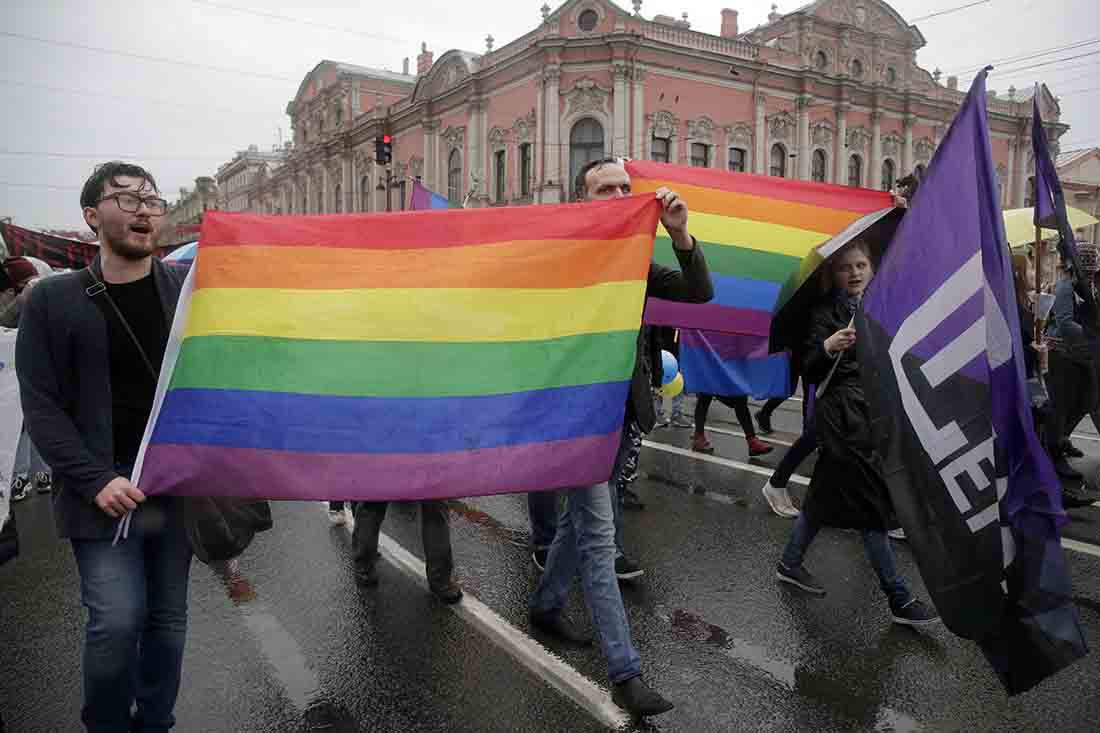Russia is Censoring LGBT On Line Groups
Kyle Knight
Researcher, Lesbian, Gay, Bisexual, and Transgender Rights Program
A Saint Petersburg court ruled last week that two lesbian, gay, bisexual, and transgender (LGBT) social media groups violated Russia’s notorious “gay propaganda” law and ordered the sites shuttered.
The groups – “Russian LGBT Community” and “Russia LGBT Network” – were hosted
on VKontakte, a Russian social media platform similar to Facebook.
The court judgments state that the incriminating material was imaged representing same-sex relationships. The judge deemed this content as responsible for “rejecting family values,
promoting non-traditional sexual relations and fostering disrespect for parents and/
or other family members.”
Under the “gay propaganda” ban, adopted in 2013, portraying same-sex relations as socially acceptable is illegal. The rationale is that such information supposedly threatens
the well-being of children.
The law has been used to target peaceful public protests, individuals’ social media posts,
teachers, and Deti-404, a website providing psychosocial support for LGBT youth.
It has been used to justify a criminal investigation of social workers who allowed a gay couple to adopt children, forcing the family to flee to the United States. Earlier this year, the European Court of Human Rights fined the government for using the law as the basis for denying registration to two LGBT groups.
Last year, Human Rights Watch wrote to the education ministry highlighting our research findings, which show that the law exacerbates the daily hostilities LGBT youth face and curtails the ability for mental health providers to intervene. The ministry’s response ignored concerns about violence
and discrimination, and said the government was responsible for fostering “the spiritual and moral values of the people of the Russian Federation.”
In the new judgments, the court insisted that the law was protective of children’s rights.
The decision even made oblique references to the Convention on the Rights of the Child,
claiming the government is protecting a child “from information and materials harmful to his
well-being.”
A warped interpretation to be sure. Not to mention a legally insubstantial justification for its ruling.
In 2014, the United Nations Committee on the Rights of the Child made clear that Russia’s law “encourages the stigmatization of and discrimination” against LGBT people. The committee also affirmed children’s rights to receive and share information about sexual orientation and gender identity.
Far from offering protection, the law endangers LGBT youth. This latest ruling for censorship is just another example of LGBT discrimination.

Comments